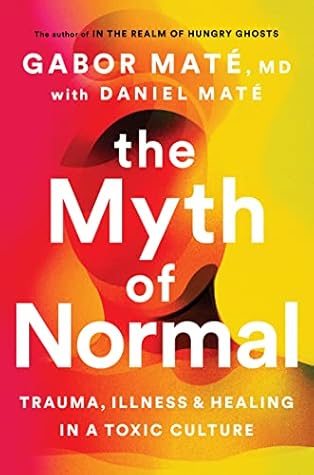More on this book
Community
Kindle Notes & Highlights
by
Gabor Maté
Read between
April 12 - August 29, 2025
It doesn’t matter whether we can point to other people who seem more traumatized than we are, for there is no comparing suffering. Nor is it appropriate to use our own trauma as a way of placing ourselves above others—“You haven’t suffered like I have”—or as a cudgel to beat back others’ legitimate grievances when we behave destructively. We each carry our wounds in our own way; there is neither sense nor value in gauging them against those of others.
An event is traumatizing, or retraumatizing, only if it renders one diminished, which is to say psychically (or physically) more limited than before in a way that persists.
“I now have a much more complex view of causation,” Steve Cole told me. “If you get a disease, a whole series of things had to have gone wrong. Some of that may be related to your genes; some of that may be related to pathogen exposure. Some of it is related to hard lives—the way that can wreak wear and tear on the body and on what would otherwise be resilient tissues. It’s better to think of it as a multistep causation . . . One of the things many diseases have in common is inflammation, acting as kind of a fertilizer for the development of illness. We’ve discovered that when people feel
...more
Except it’s not really love we get hooked on but our desperate attempts to cope with its lack, by any means necessary. Sobering stuff, I know. But we might as well face it.


